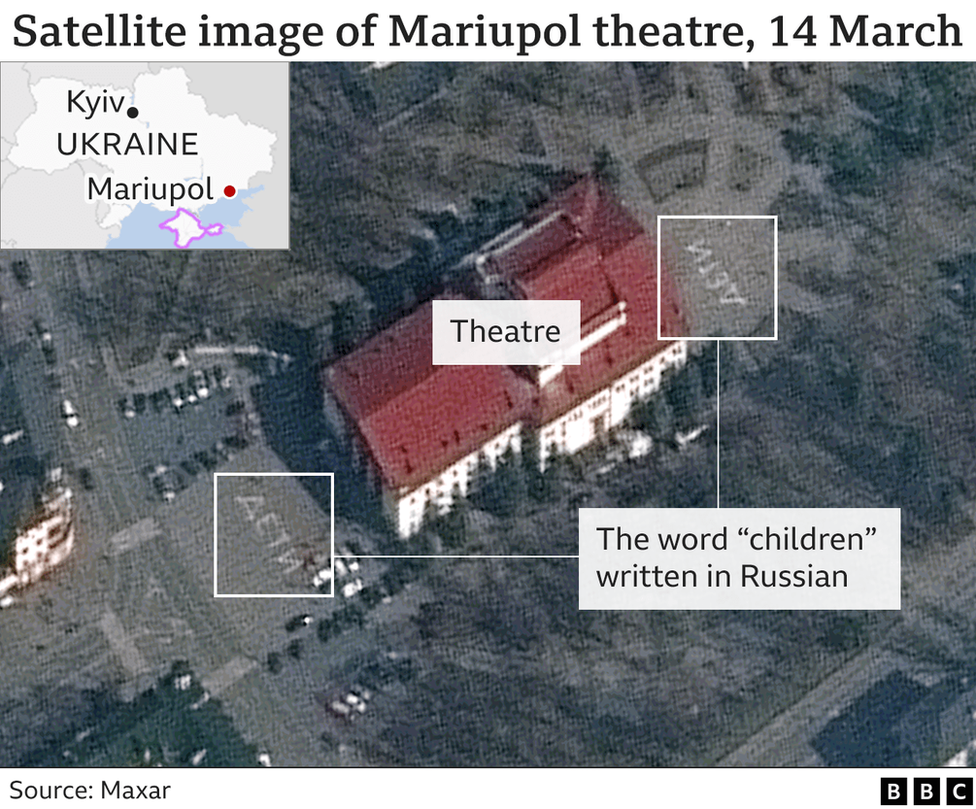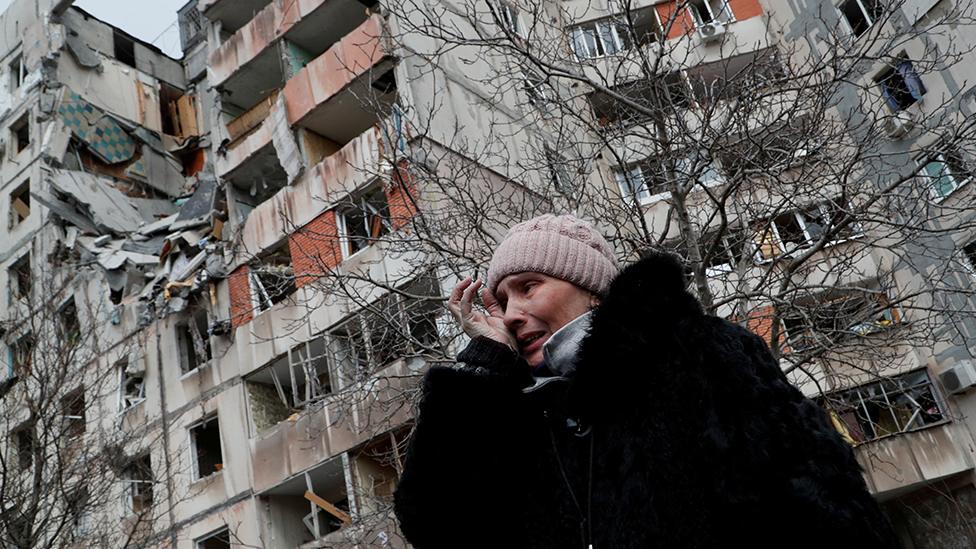War in Ukraine: Estimated 300 dead in Mariupol theatre strike
- Published
Ukraine said hundreds of civilians died when Mariupol's theatre was attacked in March
An estimated 300 people were killed in an attack on a theatre sheltering civilians in the besieged port city of Mariupol, an official has told the BBC.
Petr Andryuschenko, advisor to the mayor of Mariupol, said some 600 people were in the building when it was hit.
The attack is believed to have caused the worst known loss of life in a single strike since the invasion began.
Communication with Mariupol remains difficult so it is hard to independently verify information.
Russia has denied carrying out the attack, which has been widely condemned.
At the time of the strike, the word "children" had been written in giant letters on the ground outside the theatre building in the centre of the city.
In the wake of the attack, both Dmytro Kuleba, the Ukrainian foreign minister, and the city council accused Russia of committing a war crime.
The BBC spoke to survivors of the bombing who described mothers searching for their children under the rubble, and a five-year-old child screaming that he did not want to die.
Mr Andryuschenko told the BBC's Newshour programme that 600 people were inside the building before the attack, with about 300 of those in a basement shelter.
He said officials were able to check the death toll because they had a record of who was in the theatre before the missile strike and had spoken to survivors.
The authorities had not been able to start a rescue operation because of street fighting and continued Russian shelling nearby.

Earlier, Mariupol city hall cited a similar death toll in a Telegram post.
"From eyewitnesses, information is emerging that about 300 people died in the Drama Theatre of Mariupol following strikes by a Russian aircraft," officials wrote.
Mr Andryuschenko also confirmed that fighting was continuing in the middle of the city, but insisted that Russian forces had not yet managed to take control of the city.
The port city of Mariupol is key to Russia's military campaign. If it falls, it would give Russia control of one of Ukraine's biggest ports and create a land corridor between Crimea and the Russian-backed regions of Luhansk and Donetsk.

Medieval-like siege of a city that lies in ruins
By Hugo Bachega, BBC News, Lviv
The tragedy at the theatre in Mariupol will be remembered as an unacceptable, unjustified, and probably deliberate, attack on civilians. Another horror in a city that has seen so much of it in this war.
The site, a huge Soviet-era building in the middle of a square in the city centre, had been clearly marked as a civilian shelter, with the word "children" written in Russian on the ground outside. It is impossible it was attacked by mistake.
Hundreds of civilians, mainly women with children and elderly people, had gone there fleeing homes that were no longer safe, or no longer standing. They thought it was a place where they would find relative protection.
But there is no such a place in Mariupol. Street after street, building after building, most of the city now lies in ruins. Nothing seems to remain untouched. Tens of thousands remain trapped inside, subjected to a medieval-like siege. Little food and water, no electricity or gas.
Russia has been accused of trying to starve the city into submission. For now Mariupol, despite all the suffering, says it will not surrender.

War in Ukraine: More coverage
- Published21 March 2022

- Published22 March 2022
